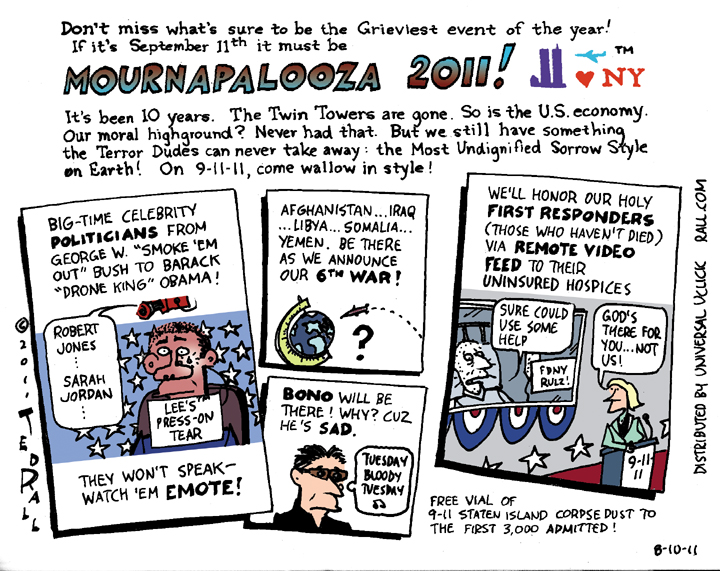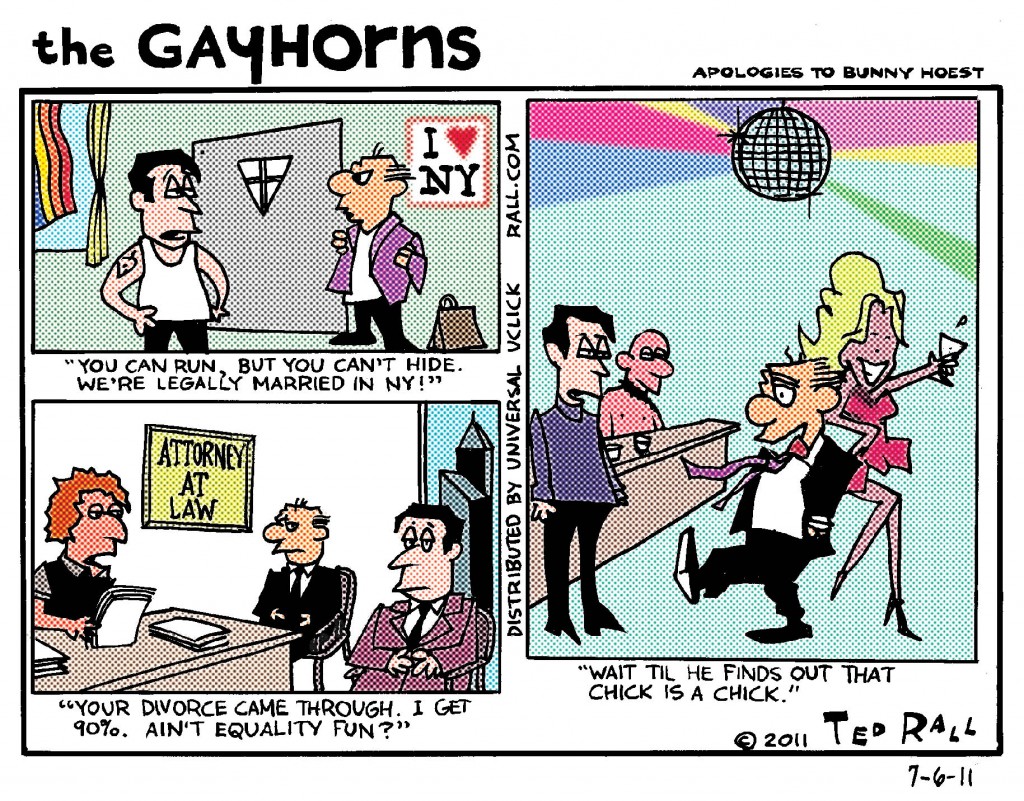Anti-Occupy Crackdowns Highlight Lack of Services
Governments are supposed to fulfill the basic needs of their citizens. Ours doesn’t pretend to try.
Sick? Too bad.
Can’t find a job? Tough.
Broke? Can’t afford rent? We don’t give a crap.
Forget “e pluribus unum.” We need a more accurate motto.
We live under a f— you system.
Got a problem? The U.S. government has an all-purpose response to whatever ails you: f— you.
During the ’80s I drove a yellow taxi in New York. Then, as now, there were no public restrooms in the city. At 4 in the morning, with few restaurants or bars open, the coffee I drank to stay awake posed a significant challenge.
It was—it is—insane. People pee. People poop. As basic needs go, toilets are as basic as it gets. Yet the City of New York, with the biggest tax base of any municipality in the United States, didn’t provide any.
So I did what all taxi drivers did. What they still do. I found a side street and a spot between two parked cars. It went OK until a cop caught me peeing under the old elevated West Side Highway, which later collapsed due to lack of maintenance. Perhaps decades of taxi driver urine corroded the support beams.
“You can’t do that here,” said the policeman.
“Where am I supposed to go?” I asked him. “There’s aren’t any restrooms anywhere in town.”
“I know,” he replied before going to get his summons book from his cruiser.
The old “f— you.” We create the problem, then blame you for the results.
I ran away.
In recent days American mayors have been ordering heavily armed riot police to attack and rob peaceful members of encampments allied with Occupy Wall Street.
Like NYC, which won’t provide public restrooms but arrests public urinators, government officials and their media allies use their own refusal to provide basic public services to justify raids against Occupations.
In the middle of the night on November 15th NYPD goons stormed into Zuccotti Park in lower Manhattan. They beat and pepper-sprayed members of Occupy Wall Street and destroyed the books in their library. Citing “unsanitary conditions,” New York’s billionaire mayor, Michael Bloomberg, then told reporters: “I have become increasingly concerned…that the occupation was coming to pose a health and fire safety hazard to the protesters and to the surrounding community.”
Four days before the police attack The New York Times had quoted a city health department statement worrying about the possible spread of norovirus, vomiting, diarrhea and tuberculosis: “It should go without saying that lots of people sleeping outside in a park as we head toward winter is not an ideal situation for anyone’s health.”
So why don’t they give the homeless some of the thousands of abandoned apartment units in New York?
Anyway, according to the Times: “Damp laundry and cardboard signs, left in the rain, have provided fertile ground for mold. Some protesters urinate in bottles, or occasionally a water-cooler jug, to avoid the lines at [the few] public restrooms.”
Of course, there’s an obvious solution: provide adequate bathroom facilities—not just for Occupy but for all New Yorkers. But that’s off the table under New York’s f— you system of government.
Doctors noted a new phenomenon called “Zuccotti cough.” Symptoms are similar to those of “Ground Zero cough” suffered by 9/11 first responders.
Zuccotti is 450 feet away from Ground Zero.
Which brings to mind the fact that the collapse of the World Trade Center towers released 400 tons of asbestos into the air. It was never cleaned up properly. Could Occupiers be suffering the results of sleeping in a should-have-been-Superfund site for two months?
We’ll never know. As under Bush, Obama’s EPA still won’t conduct a 9/11 environmental impact study.
Sick? Wanna know why? F— you.
One of the authorities’ most ironic complaints about the Occupations is that they attract the mentally ill, drug users and habitually homeless.
To listen to the mayors of Portland, Denver and New York, you’d think the Occupiers beamed in bums and nutcases from outer space.
When mentally disabled people seek help from their government, they get the usual answer: f— you.
When people addicted to drugs—drugs imported into the U.S. under the watchful eyes of corrupt border enforcement officers—ask their government for help, they are turned away. F— you again.
When people who lost their homes because their government said “f— you” to them rather than help turn to the same government to look for safe shelter, again they are told: “f— you.”
And then, after days and years and decades of shirking their responsibility to provide us with such staples of human survival as places to urinate and defecate and sleep, and food, and medical care, our “f— you” government has the amazing audacity to blame us, victims of their negligence and corruption and violence, for messing things up.
Which is why we are finally, at long last, starting to say “f— you” to them.
(Ted Rall is the author of “The Anti-American Manifesto.” His website is tedrall.com.)
COPYRIGHT 2011 TED RALL


